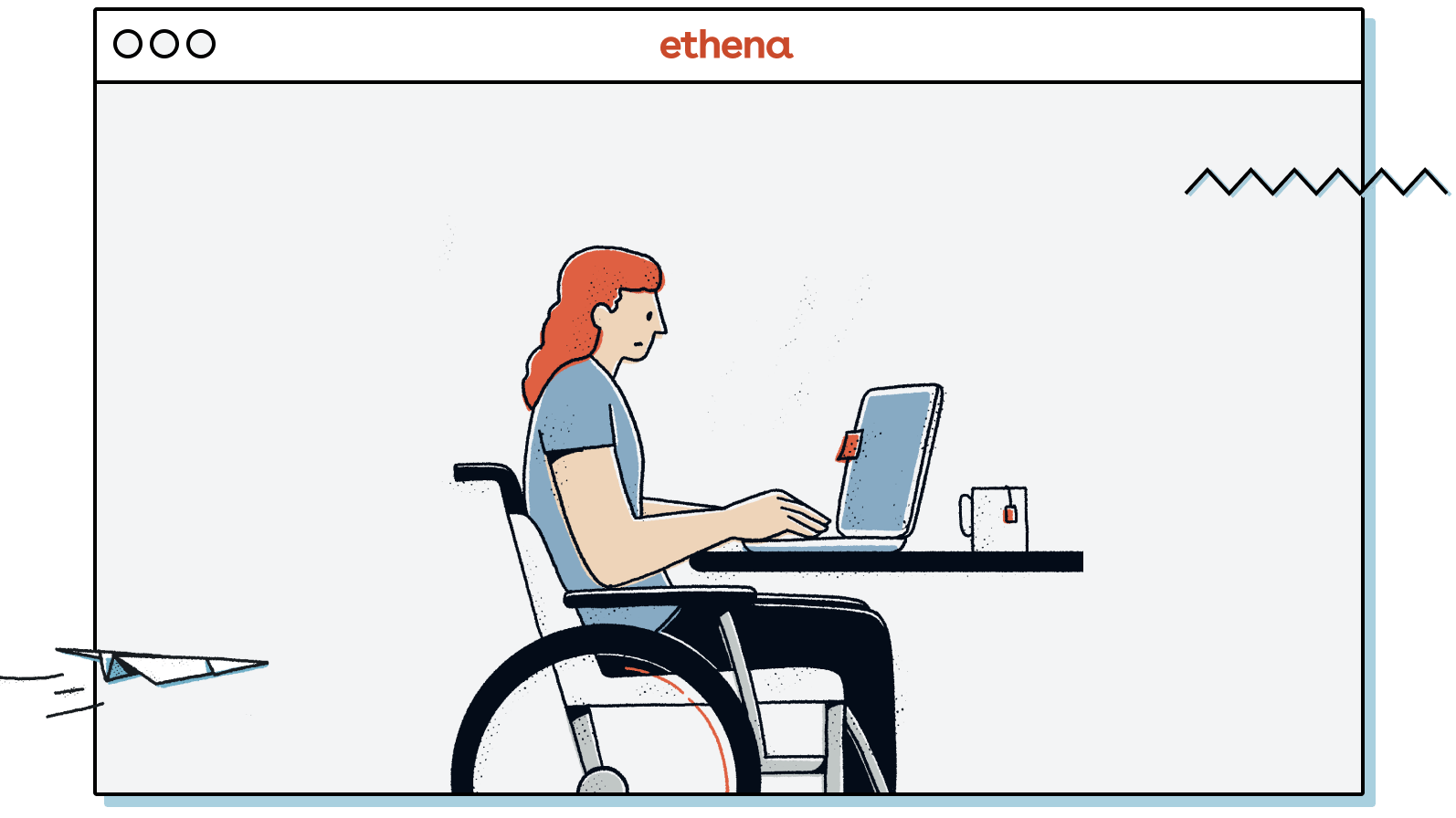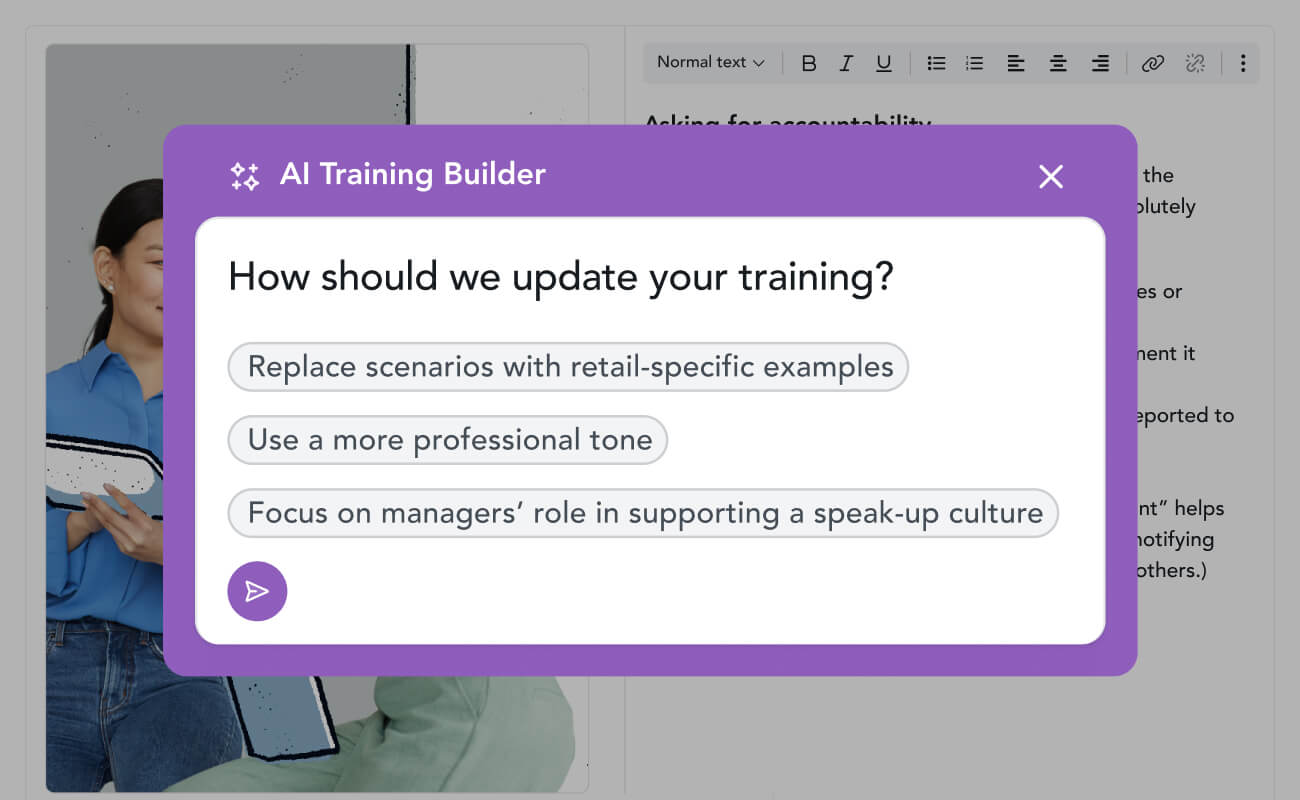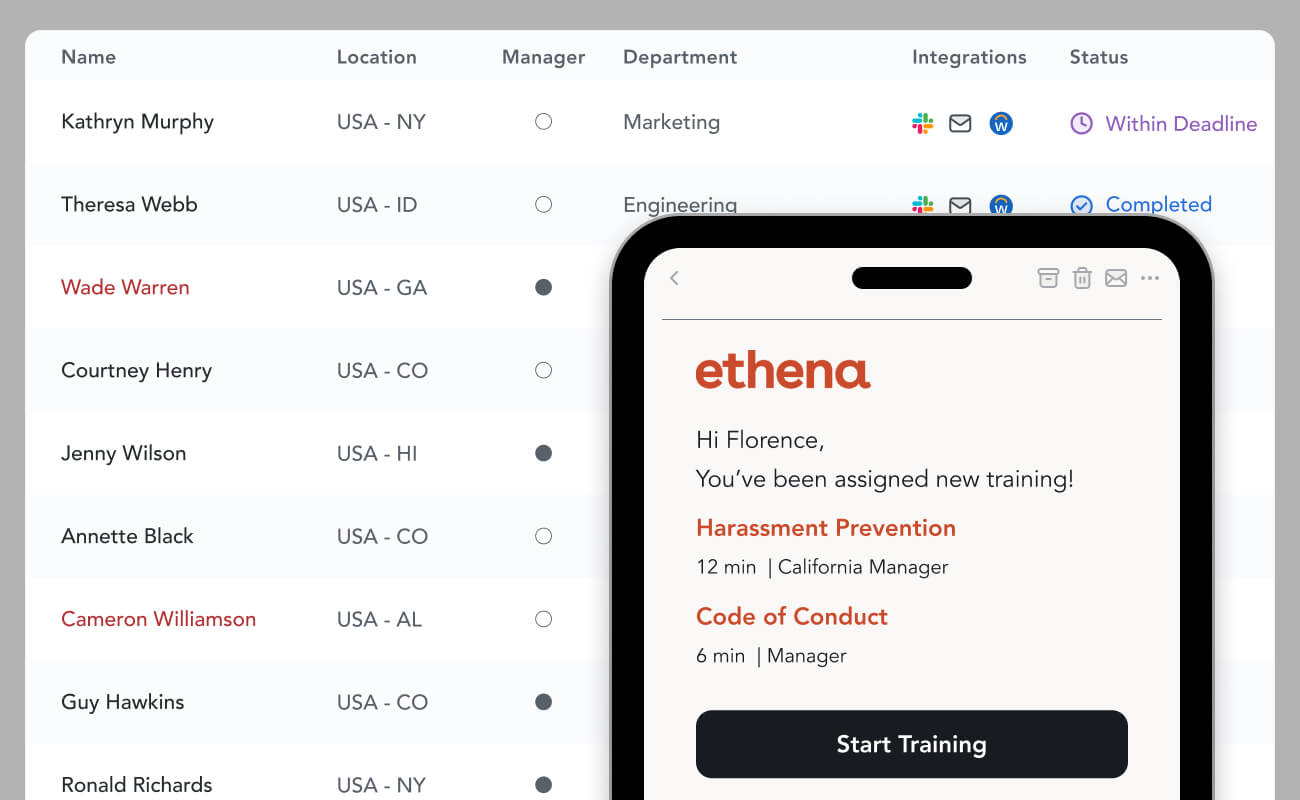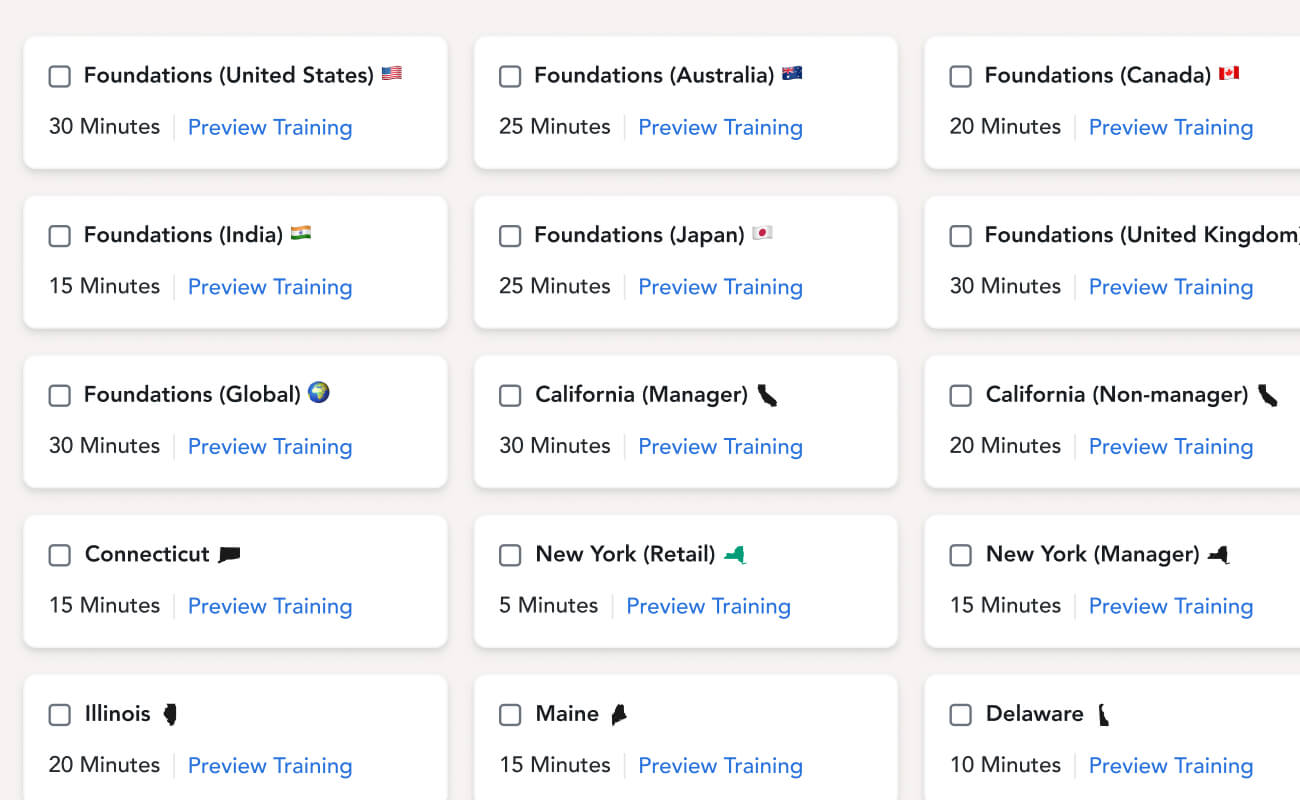AODA Training (Accessibility for Ontarians with Disabilities Act)

- AI authoring tools for easy customization
- Additional languages available
- Meets accessibility standards
- Auto-save training, mobile-friendly
- Deliver on Ethena or your LMS (SCORM)
AODA Training FAQs
Who Needs AODA Training?
All organizations in Ontario with one or more employees must provide AODA training to:
- All employees and volunteers, regardless of whether they are paid or unpaid, and whether they work full-time, part-time, or on a contract basis
- Individuals who help shape or develop the organization’s policies (such as managers, executives, directors, board members, or owners)
- Any third parties or external providers who deliver goods, services, or facilities to customers on behalf of the organization (such as external contractors)
Training is not required for employees who are based outside of Ontario.
How long is AODA training valid?
There is no set expiry or fixed validity period for AODA training under Ontario law. However, organizations must provide additional training whenever there are changes to their accessibility policies or when an employee’s job duties change in a way that affects accessibility responsibilities.
How often do employees need to take AODA training?
AODA training must be provided as soon as possible after an employee or volunteer joins the organization.
Additional training is required when there are changes to your accessibility policies or when an employee’s job duties change.
Although there are no set requirements regarding refresher training, organizations should ensure training remains current and relevant.
Is AODA training mandatory in Ontario?
Yes. AODA training is mandatory for all organizations with at least one employee in Ontario, including businesses, non-profits, and public sector organizations.
What are the recordkeeping requirements?
Organizations of any size designated as a public sector organization, and businesses and non-profits with 50 or more employees are required to keep written records of all AODA training delivered. These records must include the date the training was provided, who attended, and the number of people trained. The recordkeeping requirements are also applicable to the Government of Ontario and Legislative Assembly.
Why Is AODA Training Important?
AODA training helps organizations meet legal requirements while fostering a more inclusive, respectful workplace. It ensures employees understand how to identify and remove barriers for people with disabilities and in doing so improving customer service, team culture, and compliance. Training is essential to creating a workplace where everyone can fully participate.
Learning and compliance with AI at the core

Your training copilot
Built-in AI uses your policies and prompts to customize Ethena’s top-rated content painlessly, while controls keep you compliant.
AI authoring >

Assignments automated
Sync HRIS data to automatically deliver the right training to the right learners with automatic reminders. No more spreadsheets.
Assignment automation >

Localized content
200+ modular courses meet local, state, and country legal requirements, with fast and free translations available in dozens of languages
See courses >











